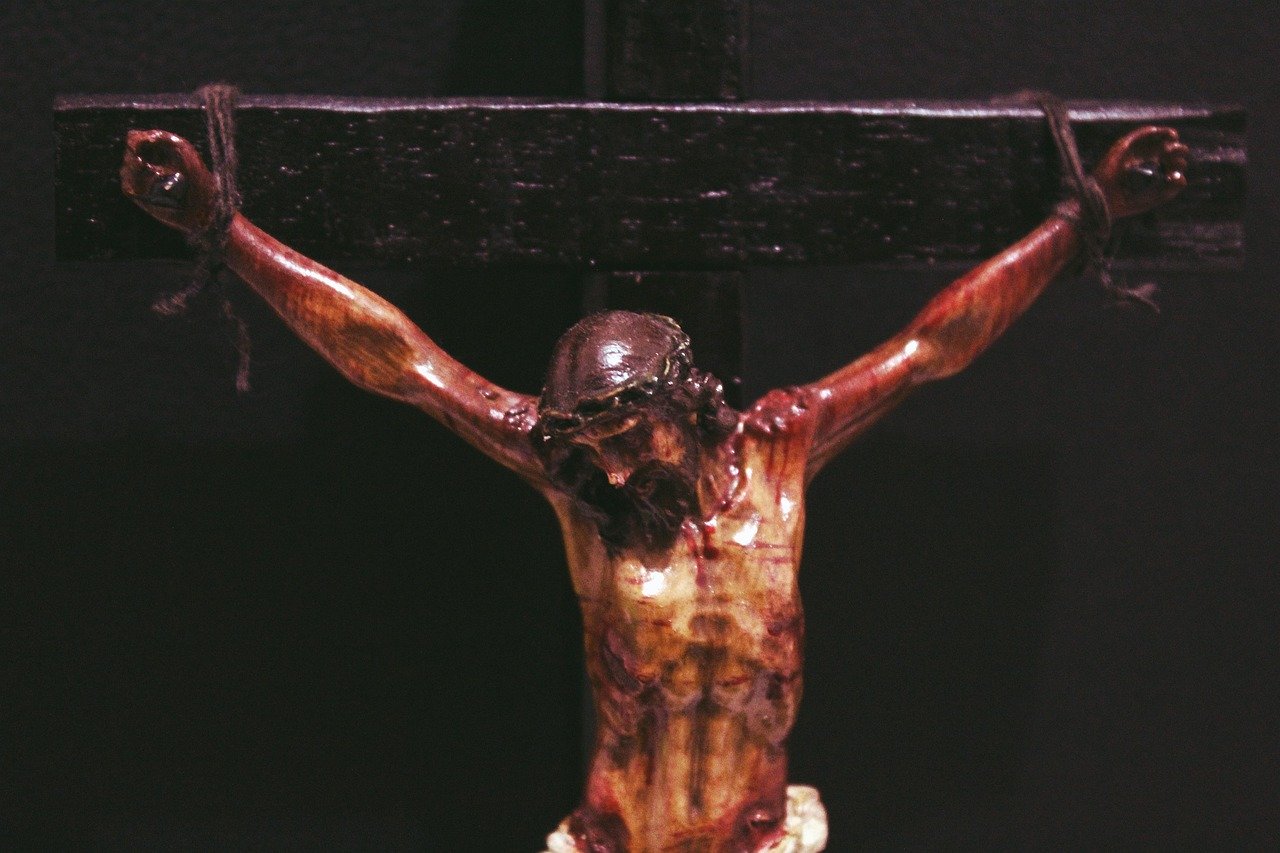Since the beginning of time, God’s plan to redeem humanity has always revolved around the shedding of Blood. Scripture declares in Hebrews 9:22, “Without the shedding of blood, there is no remission of sins.” Man did not invent this principle; it was divinely instituted by God, beginning with the Old Covenant and culminating in the sacrifice of His only begotten Son, Jesus Christ.
The Foundation: Blood Sacrifices in the Old Testament
When Adam and Eve sinned, God clothed them with skin garments (Genesis 3:21), implying the first shedding of Blood to cover sin. This pattern continued with Abel, whose offering was accepted by God because it involved Blood (Genesis 4:4). His Blood cried out from the ground after Cain murdered him (Genesis 4:10), foreshadowing how Blood speaks in the spiritual realm.
Under the Law given to Moses, God explicitly required animal sacrifices to atone for sin. Leviticus 17:11 states, “For the life of the flesh is in the blood, and I have given it to you upon the altar to make atonement for your souls.” In Exodus 12:13, during the first Passover, God instructed the Israelites to apply the Blood of a lamb to their doorposts so that the angel of death would pass over them. This powerful act of faith spared their firstborn and marked the beginning of their deliverance.
The Blood of bulls and goats was used continuously in temple rituals to cover sins temporarily. Hebrews 9:22 confirms, “And according to the law, almost all things are purified with blood, and without shedding of blood, there is no remission.” Yet Hebrews 10:4 also reminds us, “It is not possible that the blood of bulls and goats could take away sins.” These sacrifices were only a shadow of the perfect, final sacrifice.
The Fulfillment: Jesus Christ, the Lamb of God
John the Baptist introduced Jesus with these prophetic words in John 1:29: “Behold! The Lamb of God who takes away the sin of the world!” Jesus came as the fulfillment of every type and shadow in the Old Covenant. Unlike the high priests who entered the Holy of Holies year after year with the Blood of animals, Jesus entered the heavenly sanctuary once and for all with His Blood (Hebrews 9:12).
Matthew 26:28 records Jesus’ words at the Last Supper: “For this is My blood of the new covenant, which is shed for many for the remission of sins.” This statement introduced the New Covenant, a better covenant based on better promises (Hebrews 8:6). Mark 14:24 and Luke 22:20 reiterate this new reality. The cup He offered symbolized His imminent sacrifice.
Jesus’ Blood was sinless and divine. 1 Peter 1:18-19 declares, “You were not redeemed with corruptible things… but with the precious blood of Christ, as of a lamb without blemish and spot.” His Blood alone could cleanse sin and truly reconcile man to God.
The Power of the Blood
The apostles continued to preach the power of Jesus’ Blood. Paul wrote in Romans 3:25, “God presented Christ as a sacrifice of atonement, through the shedding of His blood—to be received by faith.” He goes further in Romans 5:9: “Much more than, having now been justified by His blood, we shall be saved from wrath through Him.”
In Ephesians 1:7, Paul explains, “In Him we have redemption through His blood, the forgiveness of sins, according to the riches of His grace.” The Blood redeems (Colossians 1:14), brings peace (Colossians 1:20), and reconciles us to God.
Hebrews 9:14 emphasizes the internal cleansing power of Christ’s Blood: “How much more shall the blood of Christ, who through the eternal Spirit offered Himself without spot to God, cleanse your conscience from dead works to serve the living God?”
Hebrews 10:19 declares we have “boldness to enter the Holiest by the blood of Jesus.” No longer are we separated from God’s presence. Hebrews 13:12 reminds us that Jesus suffered “that He might sanctify the people with His blood.”
1 John 1:7 adds, “The blood of Jesus Christ, His Son, cleanses us from all sin.” This cleansing is ongoing and effective. Revelation 1:5 praises Jesus, “who loved us and washed us from our sins in His blood.”
The Eternal Covenant
The Blood of Jesus also inaugurated an eternal covenant. Hebrews 13:20 speaks of “the blood of the everlasting covenant,” securing our Salvation and eternal relationship with God. Revelation 5:9 tells us that He has redeemed us to God “by Your blood out of every tribe and tongue and people and nation.”
In Revelation 7:14, those clothed in white robes “washed their robes and made them white in the blood of the Lamb.” And in Revelation 12:11, believers are described as overcoming Satan “by the blood of the Lamb and by the word of their testimony.”
Faith must receive the Blood.
Although Jesus shed His Blood for everyone, believers must receive it with faith. Romans 3:25 clearly states, “Whom God set forth as a propitiation, by His blood, through faith.” Just as the Israelites had to apply the lamb’s Blood to their doorposts physically, we must spiritually apply Christ’s Blood to our hearts through faith.
Hebrews 12:24 mentions Jesus as “the Mediator of the new covenant, and to the blood of sprinkling that speaks better things than that of Abel.” While Abel’s Blood cries out for justice, Jesus cries out for mercy, forgiveness, and reconciliation.
The communion cup reminds us of this every time we drink it. Paul says in 1 Corinthians 10:16, “The cup of blessing, which we bless, is not the communion of the blood of Christ?” And in 1 Corinthians 11:25, “This cup is the new covenant in My blood.”
Why the Blood of Jesus Matters Today?
In today’s world, many individuals fail to appreciate the profound significance of the Blood of Jesus Christ, even though Scripture speaks unmistakably. Humanity cannot earn Salvation through good deeds, religious rituals, or personal beliefs; it is a precious gift that flows from our faith in His profound and sacrificial love. Only the cleansing Blood of Jesus can wash away sin and restore our relationship with God, making us whole and righteous in His sight.
The world often downplays the seriousness of sin, but God views it as very significant. Sin carries a penalty—death, as stated in Romans 6:23— and requires Blood as payment. God’s plan for sin’s atonement started with animal sacrifices and concluded with Jesus Christ. He simplified and perfected this system by allowing His Son to be the ultimate sacrifice.
The Gospel of John 6:53-56 states, “Unless you eat the flesh of the Son of Man and drink His blood, you have no life in you.” Instead of being interpreted literally, this powerful and profound truth encourages us to connect spiritually with God’s essence and appreciate the significance of His sacrifice. The Blood of Christ is the cornerstone of Salvation, providing the pathway to eternal life and a transformative relationship with Him. God invites us to partake in His grace and share in His abundant life through this divine gift of His son’s Blood.
Conclusion
The Blood of Jesus Christ is central to the gospel and our Salvation. It is God’s eternal requirement to deal with sin. The theme persists from Moses’ sacrifices to Calvary’s cross: without the shedding of Blood, there is no forgiveness.
We no longer have to make constant sacrifices because God offered Jesus’ Blood once to atone for sin (Hebrews 9:12) fully. Blood was redeemed, forgiven, justified, sanctified, and victorious through His Blood.
Let us never take lightly the Blood of Jesus that He shed for us. Let us receive it with reverence, thanksgiving, and, most importantly, faith. The Blood of Jesus allows people to stand before God, blameless and washed. Blood is the Blood that saves, Blood is the Blood that speaks, and Blood is the Blood that brings us near (Ephesians 2:13).
“To Him who loved us and washed us from our sins in His blood… to Him be glory and dominion forever and ever. Amen” (Revelation 1:5-6).

